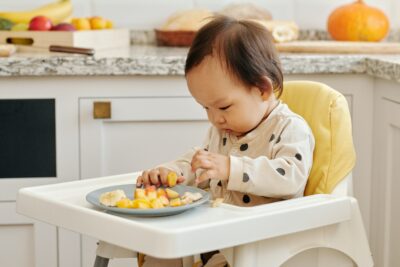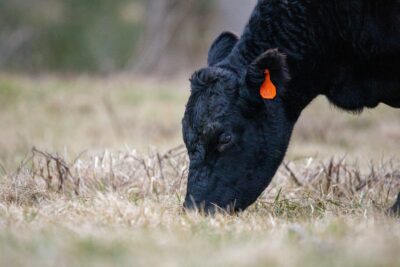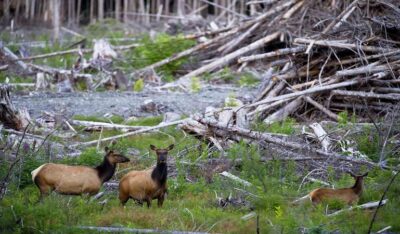As the number of adult vegans booms, so does the number of baby vegans. Parents who wish to bring up a vegan baby are met with much less resistance now and there is a lot of information and support available to ensure vegan babies’ nutritional needs are met. There is no reason why little sprouts won’t grow up happy, healthy and thriving on an animal-free diet.
Can a baby be fed a vegan diet?
The short answer is: yes, babies can be fed a vegan diet.
Leading health and nutrition bodies around the world, including the British Dietetic Association, the NHS, the First Steps Nutrition Trust and the largest organisation of nutritional professionals in the world, the American Academy of Nutrition and Dietetics, all agree that a well-planned, balanced vegan diet is healthy for babies and infants.
Vegan babies can get the energy and most of the nutrients they need from a balanced whole-foods plant-based diet, but it is also advised to give babies certain supplements to ensure their daily needs are met. Please note, information provided here does not constitute medical advice. If you are unclear about anything to do with food and nutrition, or if your baby has specific dietary needs, please contact a health professional for advice.
Vegan baby foods
Before 6 months
Breast milk is without a doubt the healthiest option for babies under 6 months old and, ideally, it’s good to continue breast-feeding until 2 years old. Breast milk contains all the vitamins and minerals babies need, as well as prebiotics and probiotics, which contribute to a healthy gut microbiome. Breast milk offers protection from certain infections, reduces the risk of SIDS (Sudden Infant Death Syndrome), childhood diabetes and leukaemia and can improve long-term health.
In order for breast milk to provide all the nutrients a baby needs, it’s vital that the mother is eating a healthy, whole-foods plant-based diet. The Vegan Society provides information on healthy foods to eat when breast-feeding here.
Because food is often lacking in nutrients due to poor soil quality, and Brits typically don’t get enough sun, the NHS recommends women take a vitamin D supplement* every day when breast-feeding. It’s also important to ensure breast-feeding mothers’ daily requirements of vitamin B12, iodine and Omega-3 are met, whether by supplementing or eating fortified foods.
And whether or not the mother is supplementing, the NHS recommends that all breast-fed babies also have a supplement of 8.5-10 micrograms of vitamin D** a day from birth.
For a number of reasons, it is not always possible for a new mother to breast-feed. Infant formula is the only suitable alternative to breast milk for babies under 12 months old – they must not be given plant milks.
Currently, there are no approved 100% vegan baby formulas available in the UK. SMA Wysoy is vegetarian and dairy-free, but the vitamin D3 comes from lanolin so is not vegan. It’s important to remember that The Vegan Society’s says exclude animal products “as far as is possible and practicable”. One can only do one’s best.
* The Vegetology range of vitamin D3 supplements (for adults) is suitable for vegans.
** Abidec vitamin drops (for babies) are vegan.
6+ months
The ideal is to continue on-demand breast-feeding. From around this age (and possibly slightly younger, in some cases), babies will also start to show interest in solid foods. Advice on starting to introduce solid foods is exactly the same for vegan babies as it is for non-vegan babies: try a variety of foods, flavours and textures, be patient, and persevere! To start with, a baby only needs a small amount of solid food once a day.
There are two ways to encourage a baby to try solid foods: feeding them smooth, puréed or mashed foods from a spoon, or what is known as ‘baby-led weaning’. This involves offering soft finger foods that the baby can hold, explore and chew. Some parents use a combination of both.
Babies will get more experienced and adventurous and will gradually start moving towards eating three meals a day. Offering a wide variety of different vegan baby foods is important to ensure they get enough energy and nutrients – and there are so many for them to try! It may take 10 attempts or more for a baby to accept new flavours and textures. There’ll be days when they eat more, some when they eat less and days when they reject everything. This is completely normal.
Foods from these food groups should be offered each day:
- Ripe/cooked fruit:
- Apple (cooked or grated to avoid choking)
- Avocado
- Banana
- Berries
- Kiwi
- Mango
- Melon
- Peach
- Pear (cooked, not raw)
- Cooked veggies:
- Broccoli
- Butternut squash
- Carrot (cooked or grated to avoid choking)
- Cauliflower
- Parsnip
- Potato
- Sweet potato
- Yam
- Cooked starchy foods:
- Cassava
- Chapati
- Pasta
- Potato
- Noodles
- Sweet potato
- Protein-rich foods
- Tofu
- Tempeh
- Hummus
- Pulses (beans, lentils, peas)
- Nut butters
- Whole grains*:
- Barley
- Bulgur
- Farro
- Millet
- Oats
- Quinoa
- Rice (black, brown, red)
- Wholemeal bread
- Wholewheat pasta
* It is very important to note that whole grain foods are high in fibre, which can fill a tiny tummy before enough healthy nutrients and calories have been ingested. Whole grain foods should be fed in moderation along with nutrient- and calorie-dense foods.
To develop a vegan baby’s palate, parents should persevere with veggies with bitter flavours such as broccoli, cauliflower, spinach and cabbage. They can be blended with other veggies and sauces.
In cooking, oil should be used sparingly. Coconut, olive and rapeseed oils are fine but using whole foods, such as avocados, olives, nuts and seeds, to provide oils is even better. They are rich in healthy fats and also provide vegan babies with protein, minerals, vitamins, fibre and antioxidants.
8+ months
Some experts recommend waiting until a baby has reached 8 months to feed certain foods that are high in nitrates, such as beetroot, kale, spinach and Swiss chard. However, the NHS deems these acceptable from 6 months. It is advisable to do some further reading to make an informed decision.
Continue to introduce different fruits, vegetables, grains, pulses, nut and seed butters.
10+ months
Breast milk (or infant formula) is still important for energy and nutrients and should be a vegan baby’s main drink until 12 months.
By 10 months, just like a non-vegan baby, a vegan baby should be used to having 3 meals a day in addition to their milk feeds. Lunch and dinner can now include a main course and a pudding. Vegan babies should be enjoying a wide range of tastes and textures, with bigger chunks of soft food and a wider variety of finger foods.
12+ months
If it’s going well for mother and child, it is advisable to continue breast-feeding.
When a toddler gets to 12 months, they are ready to eat small portions of healthy vegan meals with the rest of the family, obviously in smaller portions cut up into smaller pieces. They may also need healthy snacks in between. As they eat more solid foods, the amount of breast milk they want will decrease. Vegan babies and toddlers may have more adventurous appetites than non-vegan babies who may not have been introduced to such a wide variety of foods.
From 12 months old, infant formula is not needed. There are two vegan plant milks that can be given to toddlers of 12+ months: Alpro Growing Up Drink and SMA Plantygrow.
Vitamins and minerals for vegan babies
Once vegan babies start to move on from being solely breast-fed, it is important to ensure their daily nutritional needs are met.
The Department of Health recommends daily supplementation of vitamins A, C and D.
It is important to include a reliable source of vitamin B12 in a vegan baby’s diet, for example:
- unsweetened, fortified soya milk (in cooking – should not be offered as milk)
- unsweetened, fortified plain soya yoghurt
- nutritional yeast (aka Nooch) with added B12
There are plenty of plant-based foods that contain calcium. These include:
- almond butter
- baked beans
- broccoli
- chia seeds
- fortified plant milks (should only be used used in cooking)
- green beans
- hummus
- lentils
Vegan babies should be fed an iron-rich diet. To increase absorption, iron-rich foods should be combined with vitamin C-rich foods.
- Examples of iron rich foods:
- beetroot
- lentils
- hummus
- rolled oats
- tofu
- nut and seed butters
- quinoa
- Examples of vitamin C-rich foods:
- broccoli
- grapefruit
- kiwi
- mango
- orange
- pineapple
- tomato
When breast-feeding, vegan mothers should also ensure they are getting enough iodine, both to supply themselves and to pass on to baby. Iodine can be found in some plant foods but it is not easy to guarantee a high enough level due to modern soils being depleted. For this reason, it may be advisable to take a supplement.
- Iodine can be found in:
- courgette
- kale
- seaweed
- spring greens
- watercress
- seaweed
- strawberries
- organic potatoes with their skins left on
Breast-feeding mothers should also ensure they are getting enough of the essential fatty acid, Omega-3. Omega-3 can be found in:
- chia/linseed (flax)/hemp seeds (also suitable for feeding to babies if ground up)
- walnuts (also suitable for feeding to babies if ground up)
- soya beans
- sweet potatoes
Babies who are fed infant formula daily do not need to supplement as the formula will contain the nutrients they need (unless they are drinking less than 500ml/day). There’s more information on vegan nutrition for babies and infants here.
How much protein do vegan babies need?
A rule of thumb is that babies need 1-1.5 grams of protein per kilogram of body weight. This is the same for vegan babies. Plant-based protein-rich foods include:
- beans
- edamame (soya beans)
- lentils
- meat alternatives – should be fed in moderation as they are typically high in salt and fat
- peas
- soya yoghurt
- tofu
- nut butters
Vegan baby food ideas:
- Beetroot dip with pitta bread fingers
- Sliced cucumber with hummus
- Carrot, cauliflower and sweet potato mash
- Lentil dhal & rice
- Avocado pasta
- Bubble and Squeak
- Cottage garden pie
- Creamy butternut squash soup
- Spaghetti Bolognese with lentils & mushrooms
- Tofu scramble
- Vegan macaroni cheese
- Fruity rice pudding with chopped apricots
- Plain, unsweetened dairy-free yoghurt with fruit (fresh, tinned or stewed)
- Banana “nice cream”
There are also some important foods/ingredients to avoid:
- Hard, raw fruits and veggies e.g. carrot, apple (as they pose a choking hazard)
- Salt (including stock cubes and gravy)
- Sugar (including syrups)
- Plant milks (only breast milk and infant formula are appropriate for children under 12 months and rice milk should not be given to children under 5 years old due to possible traces of arsenic)
- Sweet drinks e.g. squash, fizzy drinks, milkshakes and fruit juice
- Choking hazards: whole nuts, whole grapes, cherry tomatoes, popcorn, whole olives, pieces of hard fruits/veg e.g. apple, carrot, celery
What commercial baby foods are vegan?
Here are some vegan baby foods that are available in the UK. Other products may be available on supermarket websites, in health food shops and online.
Annabel Karmel
- A selection of organic fruit and veg pouches (6+ months)
Babease
- Butternut squash, carrot & broccoli (6+ months)
- Parsnip, carrot & kale (6+ months)
- Sweet potato, carrot & cauliflower (6+ months)
- Sweet potato, peas & spinach (6+ months)
- Garden vegetable risotto (7+ months)
- Keralan vegetable curry (7+ months)
- Lentil puffs (7+ months)
- Mexican beans (7+ months)
- Lentil vegetable bake (10+ months)
- Sweet potato & spinach masala (10+ months)
Ella’s Kitchen
- A selection of organic fruit and veg puree pouches (4+ months)
- Vegetable lentil bake (7+ months)
- Full of beans veggie feast (7+ months)
- Veggie biryani (7+ months)
Hipp Organic
- Baby rice (4+ months)
- Carrots, peas & cauliflower (4+ months)
- Apple & pear (4+ months)
- Banana & peach (4+ months)
Little Freddie
- A selection of organic fruit puree pouches (6+ months)
- Butternut squash, red lentils & coconut (6+ months)
- Carrot, pumpkin, pea & pear (6+ months)
- Carrot, sweet potato & parsnip mash (6+ months)
- Carrot & chickpeas with pumpkin seed butter (6+ months)
- Haricot bean & sweet potato cassoulet (7+ months)
Little pasta organics
- Asparagus, pea & broad bean pasta sauce (9+ months)
- Pumpkin & carrot pasta sauce (9+ months)
- Spinach & broccoli pasta sauce (9+ months)
- A selection of pasta shapes (10+ months)
Organix
- Baby rice (6+ months)
- Fruity apple porridge (6+ months)
- Strawberry & banana porridge (6+ months)
- Herby butternut with beans (7+ months)
- Tropical chickpeas with rice (7+ months)
- Banana & plum porridge (7+ months)
- Multigrain porridge (7+ months)
- Banana, peach & apple muesli (10+ months)
- Raspberry & banana muesli (10+ months)
Piccolo
- A selection of fruit puree pouches (4+ months)
- A selection of veg puree pouches (4+ months)
- Carrot, sweet potato & butternut squash (4+ months)
- Courgette, pea & leek (4+ months)
- Pear, apple & spring greens (4+ months)
- Pear, butternut squash, carrot & leek (4+ months)
- Sweet potato, apple, pear & beetroot (4+ months)
- Gluten-free rice pasta (6+ months)
- Carrot & multigrain puffs (7+ months)
- Tomato & multigrain rings (7+ months)
- Little stars baby pasta (7+ months)
- Classic tomato & veg sauce (7+ months)
- Little butterflies baby pasta (10+ months)
Allergies
It’s important to introduce foods that can trigger allergic reactions one at a time, in very small amounts, so that any reaction can be spotted immediately. Plant-based foods to pay attention to include:
- Peanuts – it is worth noting that, according to the NHS, evidence has shown delaying the introduction of peanuts beyond 6-12 months may increase the risk of developing an allergy to them.
- Soya (soya milk, soya yoghurt, tofu, tempeh, some meat alternatives)
- Tree nuts (almonds, Brazil nuts, cashews, hazelnuts, pecans, pistachios, walnuts)
- Wheat
For vegan babies who have been diagnosed with a soya allergy, unsweetened oat milk can be used in cooking.
Conclusion
There is a myriad of delicious and nutritious plant-based foods that are suitable for vegan babies. By feeding a baby a selection of fruits, veggies, nuts, seeds, grains and pulses, vegan babies will be introduced to an exciting world of flavours, textures and vibrant colours. Vegan parents can take pride in bringing a vegan child into the world who will grow into a happy, healthy individual, hopefully with a love of animals and tasty food.





